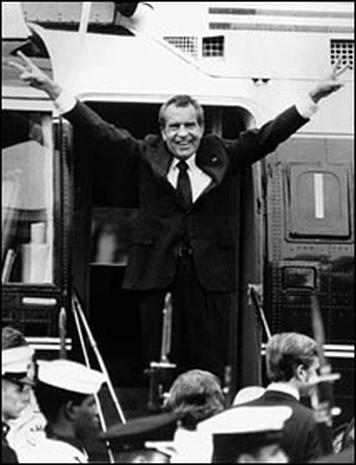
Historical Context

Since Katherine Paterson briefly mentions the Vietnam War in the earlier portion of the story, Miss Edmunds, the music teacher, Leslie, and her parents are looked upon as "hippies." The desire for Leslie to literally run footraces with Jesse and the other boys (gender equality/women's movement), highlighted historical events starting from the late 1960s to mid-1970s are covered in this section.
April 12, 1966- "B-52 Bombers used for the first time on North Vietnamese targets." (Epstein, D., 2001)
August 6, 1966- "Demonstrations against the Vietnam War held across the country." (Epstein, D., 2001)
July 8, 1969- "Troop reductions begin in Vietnam, as 814 troops of the Ninth Infantry leave for home." (Epstein, D., 2001)
August 15-18, 1969 Woodstock Music and Art Fair-This was a weekend folk rock festival on Max Yasgur's farm near Bethel, NY. Recreational drugs made their way through the crowds-estimated at 300,000-400,000 people. The police and medics were present only if needed for misbehavior and bad drug reactions. The youths (primarily "hippies"), in attendance exhibited cooperative, peaceful, and enthusiastic behavior and only three deaths occurred, possibly from drug overdose (Carruth,G., 1991). The concert itself featured bands and famous rock stars such as Jimi Hendrix, Sly and the Family Stone, The Jefferson Airplane, and Crosby, Stills and Nash (Epstein, D., 2001).
April 23, 1971- "Numerous Vietnam veterans return their medals and decorations as part of an anti-war protest in Washington D.C." (Epstein, D. 2001)
Spring 1972- Debut of premier issue of Ms., the first feminist magazine for women. This magazine, edited by feminist, Gloria Steinem was created in conjunction with the U.S. Senate's passing of the ERA (Equal Rights Amendment, prohibiting discrimination on the basis of gender. "The Amendment was then sent to the individual states for ratification; by the end of the year, twenty-two of the required thirty-eight states had ratified it." (Epstein, D., 2001)
August 12, 1972- "Last of U.S. Ground forces withdrawn from Vietnam."(Epstein, D., 2001)
December 18, 1972- "Full-scale bombing of North Vietnam resumes after Paris peace negotiations reach impasse." "The bombings are halted again on December 30."(Epstein, D. 2001)
January 22, 1973- "Vietnam peace agreement is signed in Paris by representatives of the United States, South
Vietnam, and the Viet Cong." (Epstein, D. 2001)
The Watergate Scandal Timeline
The 18 1/2 Minute Tape Gap
On November 21, 1973, the White House reported that two of the subpoenaed tapes were missing, and that one
that was dated just 3 days after the Watergate burglary contained an erasure of 18 1/2 minutes during a
conversation between the President and H.R. Haldeman. Haldeman's personal notes on the meeting indicate that
the break-in was the subject under discussion. Nixon's secretary, Rose Mary Woods, in initial testimony about
the tape, said, "The buttons said on and off, forward and backward. I caught on to that fairly fast. I don't
think I'm so stupid as to erase what's on a tape." Later she tried to explain that she had accidentally
re-recorded 5 minutes of the tape, while transcribing it, but only 5 minutes, not 18 1/2. She demonstrated how
she probably had recorded over the tape with her foot on the transcription pedal located beneath her typewriter
as she reached awkwardly for the phone. Suspicions arose that Nixon was destroying evidence.
http://www.authentichistory.com/1961-1974/6-nixon/3-watergate/timeline/
On February 6, 1974, the House voted to authorized the Judiciary Committee to investigate grounds for impeaching president Nixon. http://www.authentichistory.com/1961-1974/6-nixon/3-watergate/timeline/
March 1, 1974, indictments were handed down for what the press dubs "the Watergate Seven": Former Attorney General and Nixon campaign manager John N. Mitchell, former White House Chief of Staff H.R. Haldeman, former Nixon aide John Ehrlichman, former White House counsel Charles Colson, White House Aide to Haldeman, Gordon C. Strachan, aide to Mitchell and CREEP counsel Robert Mardian, and CREEP counsel Kenneth Parkinson. Former White House Counsel John Dean had taken a plea bargain back in October. Nixon was named an "unindicted co-conspirator" by the grand jury. http://www.authentichistory.com/1961-1974/6-nixon/3-watergate/timeline/
On April 16, 1974, Special Prosecutor Jaworski issued subpoenas for sixty-four more Nixon tapes. http://www.authentichistory.com/1961-1974/6-nixon/3-watergate/timeline/
On April 29, 1974, President Nixon addressed the nation responding to the House Judiciary Committee's Subpoena for Additional Presidential Tape Recordings. http://www.authentichistory.com/1961-1974/6-nixon/3-watergate/timeline/
On April 30, 1974, the White House released edited transcripts of the Nixon tapes and promises 1,200 pages. The House Judiciary Committee insisted that the actual tapes be turned over. The public is shocked by the course language used in private by the President, even though the phrase "expletive deleted" is used in place of the actual words used. http://www.authentichistory.com/1961-1974/6-nixon/3-watergate/timeline/
On May 9, 1974, the House Judiciary Committee began impeachment hearings. http://www.authentichistory.com/1961-1974/6-nixon/3-watergate/timeline/
United States v. Nixon, Articles of Impeachment, and the "Smoking Gun" Tape
On July 24, 1974, the Supreme Court unanimously decided United States v. Nixon. The President's argument was rejected. Nixon was ordered to turn over the tapes to investigators. He reluctantly complied. Meanwhile, the House Judiciary Committee pressed ahead. http://www.authentichistory.com/1961-1974/6-nixon/3-watergate/timeline/
July 27 and 30, the Committee adopted three articles of impeachment against the president: Obstructing the Watergate investigation, Misuse of power and violating his oath of office, Failure to comply with House subpoenas. http://www.authentichistory.com/1961-1974/6-nixon/3-watergate/timeline/
On August 5, in an effort to soften impact of the inevitable disclosure, Nixon voluntary made public three of the subpoenaed tapes. One of these would become known as the "Smoking Gun" tape, a conversation recorded six days after the Watergate break-in. In that tape, Nixon orders Haldeman to use the CIA to hold back the inquiry by the FBI. Haldeman introduces the topic as follows: "...the Democratic break-in thing, we're back to the--in the, the problem area because the FBI is not under control, because Gray doesn't exactly know how to control them, and they have... their investigation is now leading into some productive areas [...] and it goes in some directions we don't want it to go." http://www.authentichistory.com/1961-1974/6-nixon/3-watergate/timeline/
President Nixon ResignsOn August 8, key Republican Senators informed the President that, once impeached, enough votes existed in the Senate to convict the President in the trial and remove him from office. That night, Richard Nixon addressed the nation from the Oval Office. He informed the American people that he no longer had a base of support in Congress. Therefore, he would not see the impeachment proceedings through to their conclusion. The nation needed a full-time president. In the interests of the nation, he would resign. The President said, "To continue to fight through the months ahead for my personal vindication would almost totally absorb the time and attention of both the President and the Congress in a period when our entire focus should be on the great issues of peace abroad and prosperity without inflation at home. Therefore, I shall resign the Presidency effective at noon tomorrow. Vice President Ford will be sworn in as President at that hour in this office." http://www.authentichistory.com/1961-1974/6-nixon/3-watergate/timeline/
Nixon Departs, Gerald R. Ford Takes the Oath of Office
The next morning, on August 9, President and Mrs. Nixon said their goodbyes to the White House staff in the East Room. The Nixons, accompanied by the Fords, walked across the White House lawn to Marine One, where the President turned and gave one last farewell. http://www.authentichistory.com/1961-1974/6-nixon/3-watergate/timeline/
December 21, 1974- "The New York Times reports that the CIA, during the Nixon administration, had maintained files on some 10,000 U.S. citizens, as well as engaged in illegal domestic operations against opponents of the Vietnam War." (Epstein, D., 2001)

April 30, 1975- "The Vietnam War ends, as the last remaining U.S. citizens are air-lifted out of Saigon. Cambodia and South Vietnam fall to Communist forces." (Epstein, D., 2001)